The market for web hosting has absolutely exploded in recent years. According to data published by Statista, global revenue for web hosting is projected to reach $90.42 billion in 2023. By 2027, that number is expected to skyrocket to $144.40 billion.
So what’s driving this incredible growth? The short answer: the demand for websites.
Siteefy estimates that 175 websites are launched every minute. And as more people are going online each year, it’s not unlikely that that number will only continue to rise.
Naturally, you’re interested in taking advantage of the new business opportunities emerging due to that growth, which is why you’re curious about reseller hosting.
Unlike many other forms of hosting, reseller hosting doesn’t get that much attention. And while it can be highly profitable and requires little upfront investment, many digital agencies and entrepreneurs are yet to take full advantage of this aspect of the web hosting industry.
But why is that?
One common dilemma many small business owners face when assessing the viability of reseller hosting is how exactly to resell hosting services in a competitive and budget-friendly way.
We’ve put together this guide to give you a straightforward answer to that question. Let’s take a look at how to resell hosting and start building a profitable WordPress reseller hosting business.
- What is reseller hosting?
- How does a reseller hosting business work?
- The benefits of starting a reseller hosting business
- What to consider before starting a reseller hosting business
- How to build a WordPress reseller web hosting business
- Final thoughts: Building a WordPress reseller hosting business
What is reseller hosting?
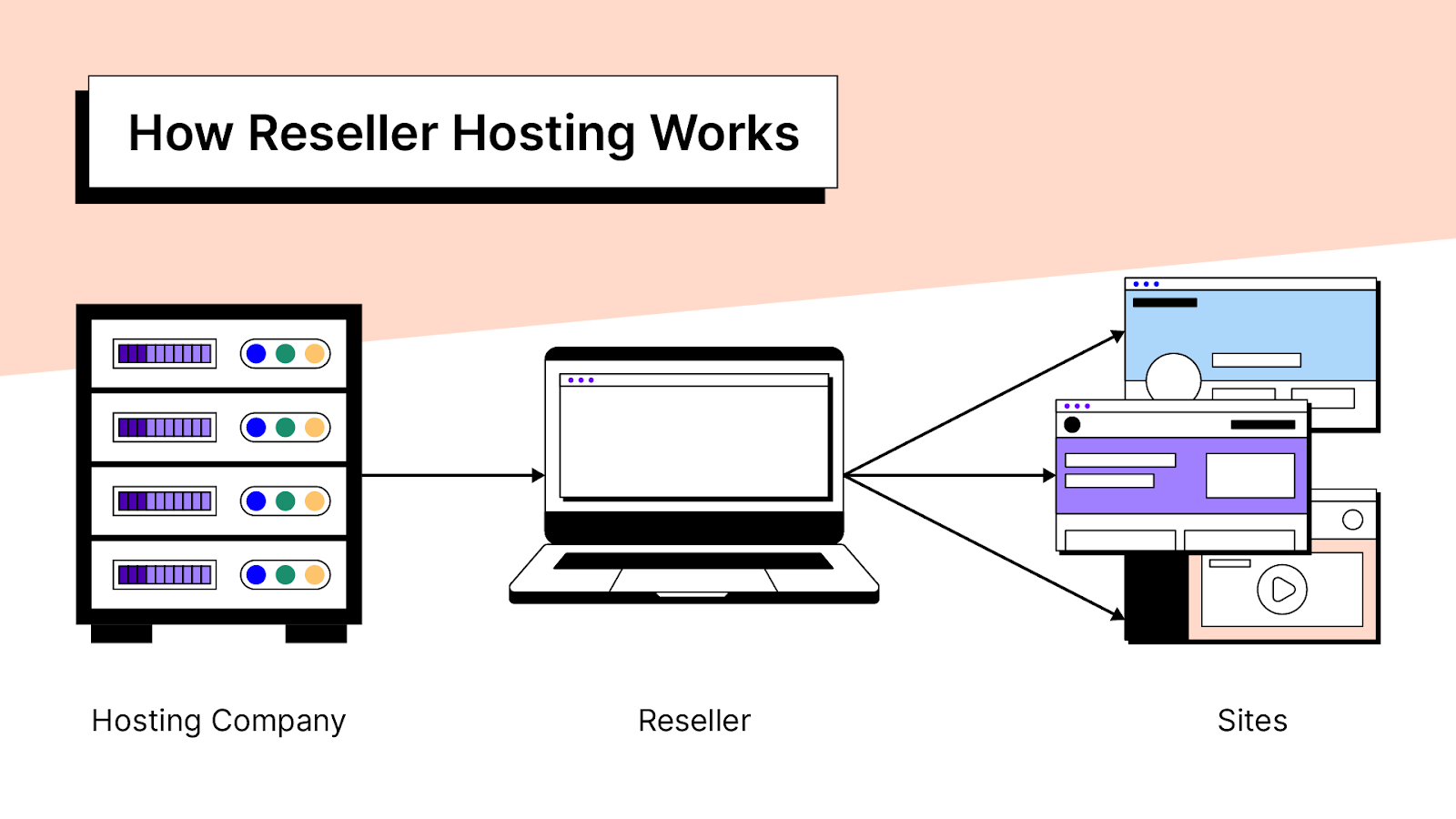
Reseller hosting is the process of renting domains, server space, and bandwidth from large hosting companies, and then reselling these services to customers for a profit.
What sets reseller hosting plans apart from more traditional ones, like shared or VPS hosting, is that you purchase the server resources from the web hosting company in bulk. By doing this, both your business and your customers have more control over how those resources are distributed.
In other words, once you’ve created your reseller hosting account and purchased your plan, it’s up to you how to divvy up your server space to your clients.
Also, due to the flexibility of reseller hosting plans, you can offer additional features (perhaps ones that your agency already provides) to new customers, such as website builder or search engine optimization (SEO) services.
How does a reseller hosting business work?
At its core, starting and running a reseller hosting business is a straightforward affair. Let’s boil it down into four simple steps:
- Pick your provider. You’ll need to rent ample bandwidth, server space, and domains from a reputable web hosting provider.
- Build your plans. You’ll need to divide those resources up into your own hosting plans and add your business’s branding to them. This act of adding your own branding to another business’s hosting product is often called white-label branding.
- Market your plans. You’ll need to find (or already have) a customer base that wants web hosting services. We’ll discuss in more detail later some of the ways to go about advertising your hosting packages.
- Sell your plans. You’ll resell the hosting plans you created to those customers at a higher rate than what you’re renting them for.
The benefits of starting a reseller hosting business
Now that we’ve taken a look at how a reseller hosting business works, it’s time to explore some of the top reasons why being a hosting reseller can benefit you.
1. White-label customizability
One of the main benefits of reseller hosting is that you get to sell web hosting plans under your business’s name without having to manage the hosting services yourself. This is known as white-label customizability.
White-label customizability allows you to present the hosting services to clients as part of your company’s unique offer without having to take on the burdens associated with traditional hosting.
That means you won’t need to gain advanced technical knowledge, raise capital to invest in expensive infrastructure, or deal with maintaining data centers. All of that is taken care of by the web host.
You will, however, be able to establish your authority in the web hosting space and position your business as a hosting provider.
2. Affordability
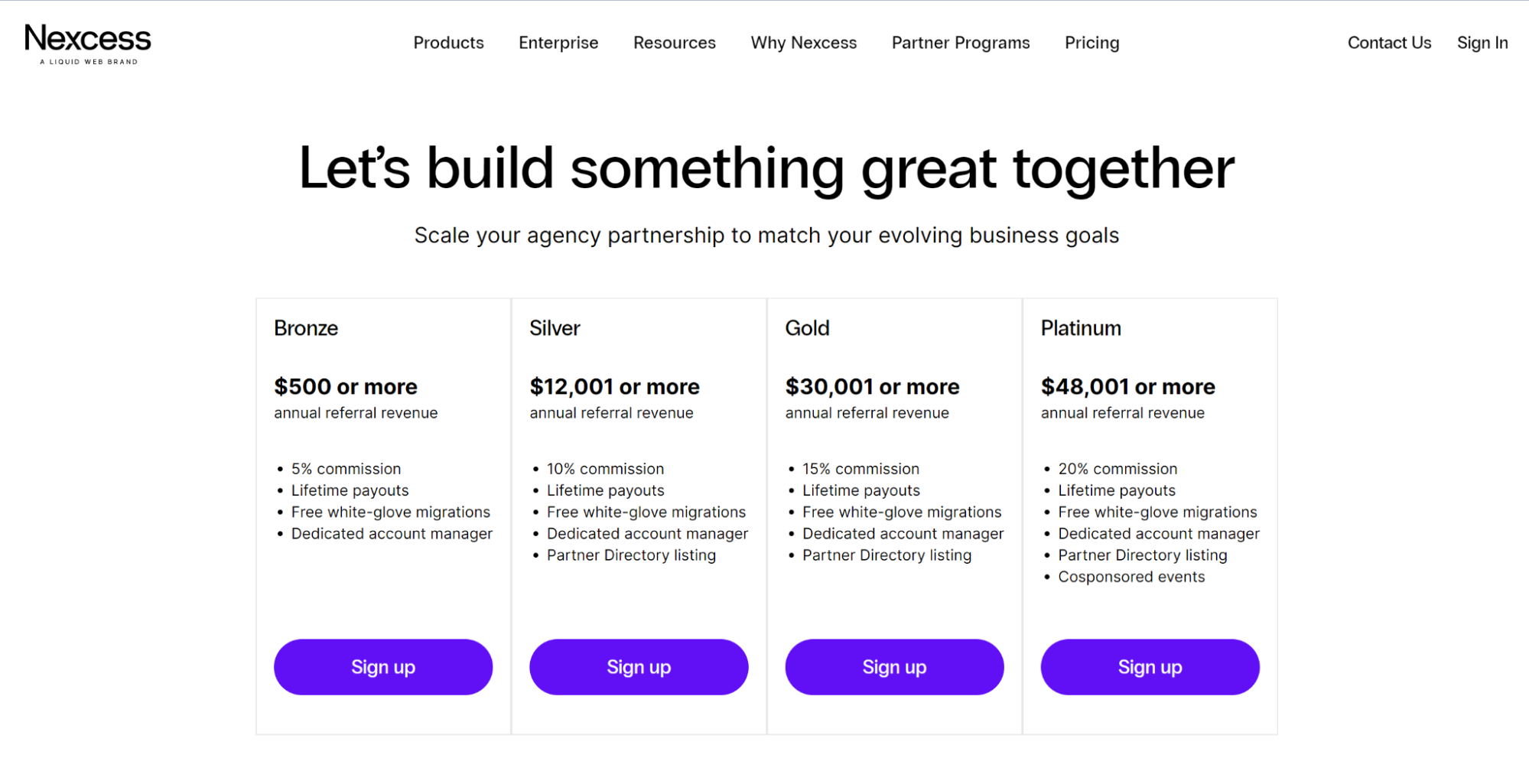
Reseller hosting removes the need to invest capital upfront, meaning that starting a business in this industry comes with relatively affordable startup costs.
Plus, because the hosting providers handle responsibilities such as maintaining data centers, handling disaster recovery, and paying employees, the upkeep costs are minimal.
The low financial barriers to entry make reseller hosting an affordable, approachable, and accessible business model that won’t hurt your bottom line.
3. Scalability
Due to the low costs and easy customizability, it’s simple to start small with reseller hosting and then scale up as time goes on.
Most reseller hosting plans are multi-tier, so it’s easy to expand your business once you’ve built up a customer base.
Also, because most reseller hosting plans are scalable, you won’t need to worry about outgrowing them. You can simply transition to the next level in the plan without negatively impacting your clients or altering your business plan.
4. Flexibility
Reseller hosting provides a myriad of versatile options when it comes to packages and plans, which you can then leverage to present that same flexibility to your customers.
You can prioritize whatever you and your customers need most and avoid paying for extras you don’t want. Are you looking for high bandwidth? Domain names management? Free migrations? Whatever you’re searching for, you can most likely find it through a reseller program.
You can also curate your own customized bundles to present packages with the features and add-ons your customers truly need.
What to consider before starting a reseller hosting business
While starting a reseller business or expanding your current offerings isn’t too difficult, there are a couple of important questions you’ll need to ask yourself before you get going.
1. What niche will you satisfy?
Before you get your reseller hosting business up and running, it’s a good idea to think about which niche, or unique approach to hosting, your new business services will satisfy.
This is critical because, as a web hosting reseller, you won’t be able to offer prices as low as those of large-scale hosting providers. To justify the higher cost, therefore, you’ll need to present a special angle, specific offer, or specialization in a subsection of the hosting market.
Choose a niche you can fulfill well in a market that holds potential for profit, and you’re setting yourself up for success.
2. What core features will you offer?
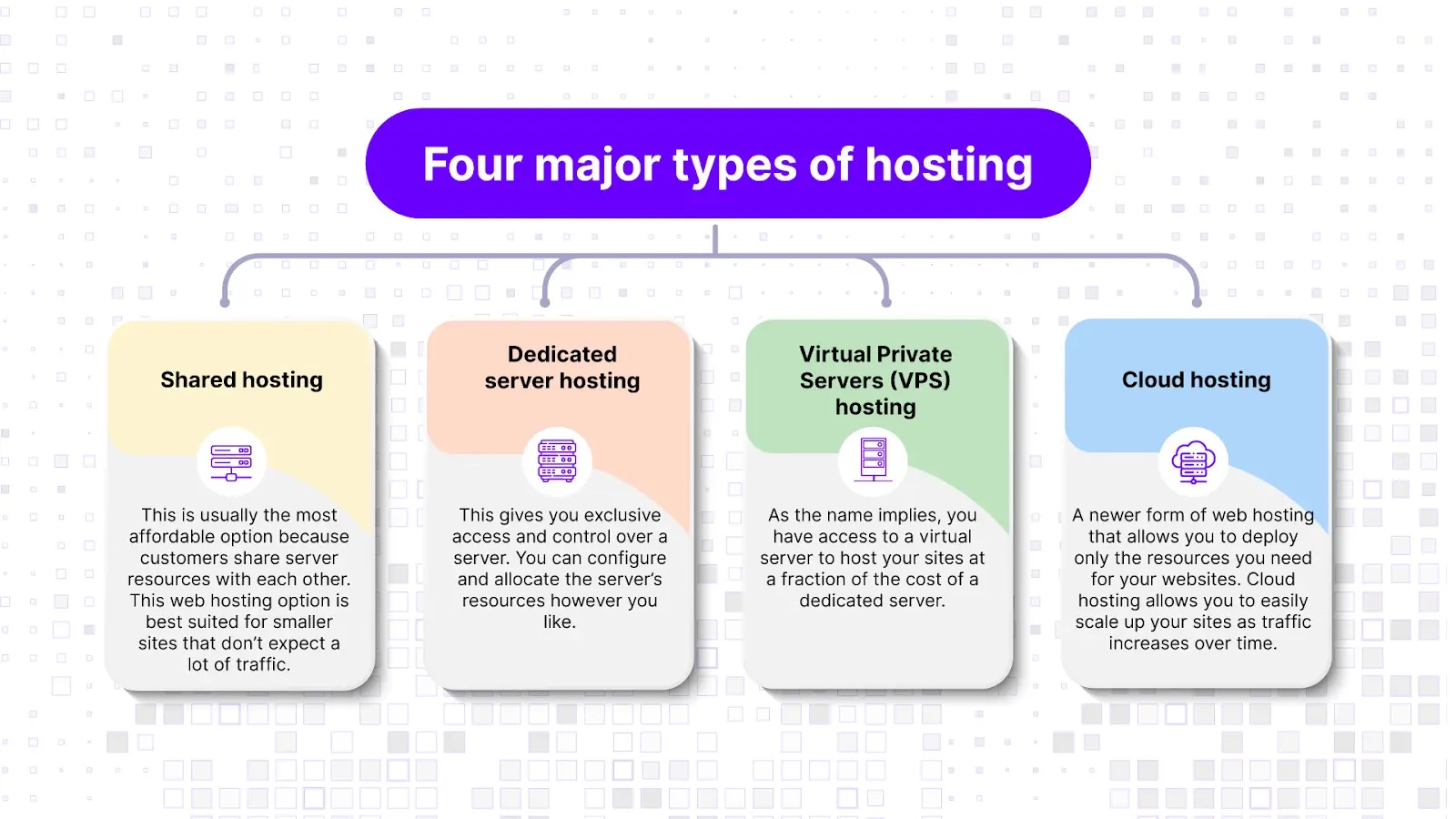
You’ll also need to consider which hosting services your reseller hosting business will provide.
Bandwidth, disk space, domains, uptime, and speed make up the beating heart of web hosting, but they aren’t the only elements to think about.
Will your packages come with automatic updates, performance monitoring software, website builders, or free SSL certificates?
You’ll also need to think about which type of hosting you’ll provide. Dedicated server hosting? VPS hosting? Cloud hosting?
We’ll discuss more add-ons and extra features later on, and you can always alter your offerings as you grow. Nevertheless, it’s essential to determine your main offer before you start your business.
3. How will you handle customer/tech support?
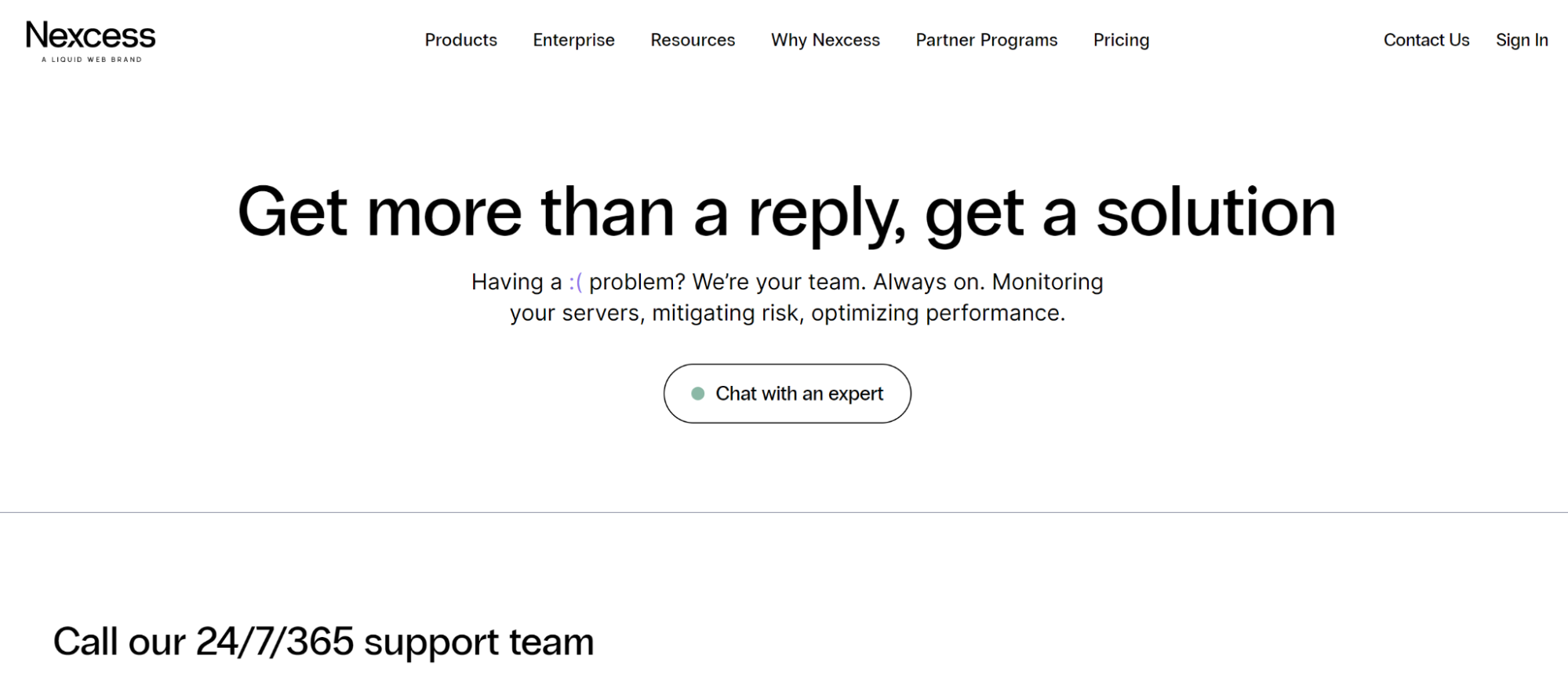
Before you finish setting up your reseller hosting business, you’ll need to ask yourself how you’ll provide customer service and technical support to your customers.
This is one of the most important aspects of web hosting. Your customers won’t be hosting experts and will undoubtedly need your help with troubleshooting and remedying any issues that come up.
While you could invest the time and money into training an in-house customer service team, a much more cost-effective option is to choose a hosting provider that handles everything related to customer support.
Once you’ve made these considerations and ensured you can meet the requirements, it’s time to start building your WordPress reseller hosting business.
How to build a WordPress reseller web hosting business
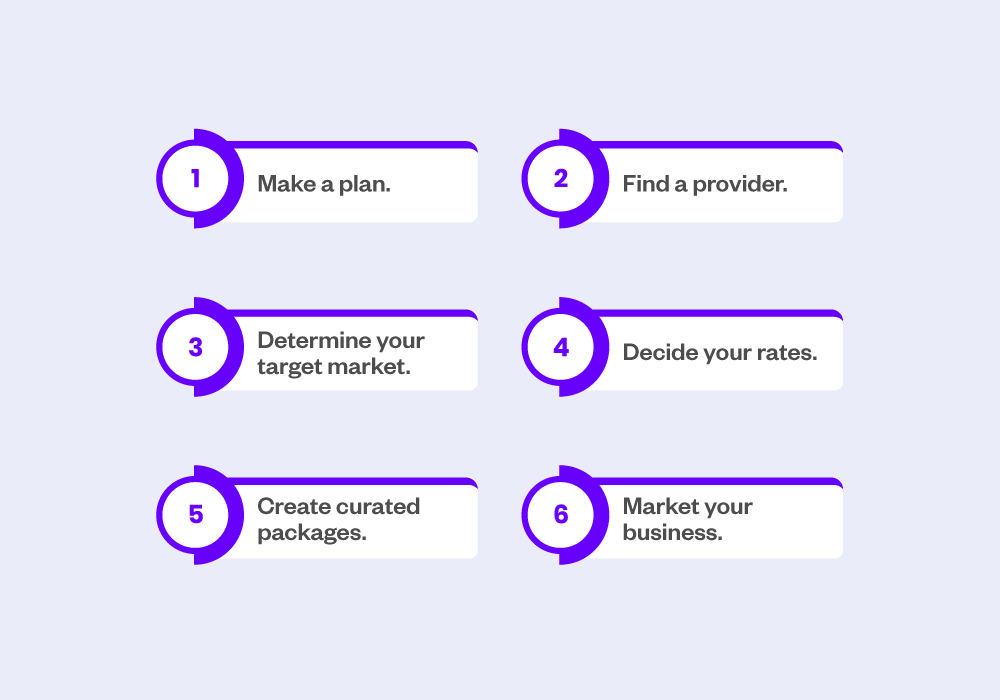
According to data collected by W3Techs, 43.2 percent of all websites use WordPress, which illustrates the potential payoff of reselling hosting services in the WordPress website market.
But to realize that potential, you’ll have to strategically approach starting your new business. Let’s take a look at the steps you’ll need to take to build your reseller hosting business.
1. Create a business plan
As we discussed above, it’s important to clearly define your niche and unique value proposition (UVP) and use them to write a successful business plan.
No matter what your UVP is, it’s critical that you outline your goals, an overarching strategy, and specific methods you’ll use as you make a plan for how to resell hosting services.
Focus on what you can offer clients that your competitors can’t, what your vision of success is, and how you might practically reach that success.
Also, keep in mind that you want your business plan to be dynamic — capable of adapting to shifting contexts.
2. Find a WordPress reseller hosting provider
More so than any of the other steps on this list, it’s essential that you choose a hosting provider that’s right for your reseller hosting business. You’ll need to decide which resell hosting providers align with your brand values and offer fully managed WordPress solutions.
Here are some of the most important features reseller hosting packages should come with:
- High performance
- DNS services
- User-friendly control panel
- Fully managed WordPress functionalities
- Website migrations
- Regular updates and backups
- 24/7 customer service
- Transparent pricing
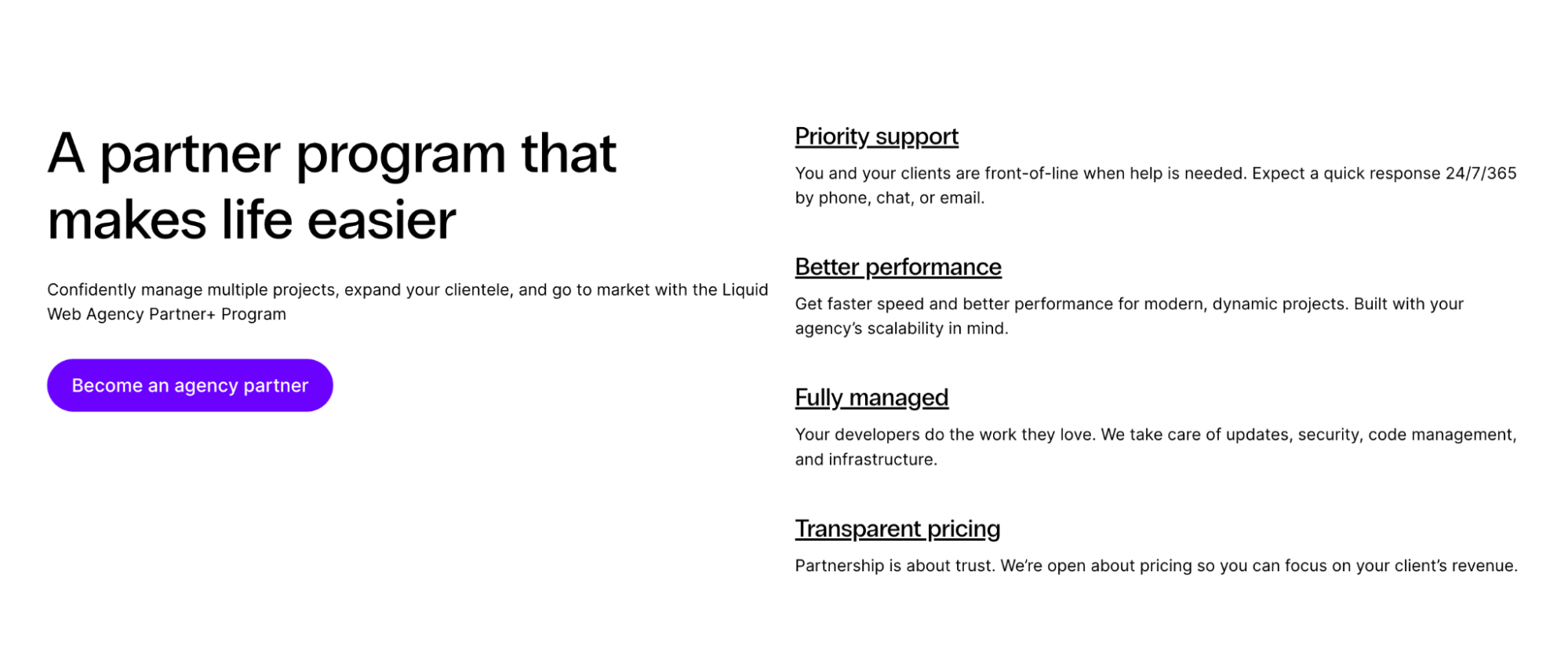
When choosing between different hosting providers, you need to ask yourself a few key questions: Which web hosting features do your clients really need for their businesses? Which features do you really need to expand yours?
For example, if you’re an SEO-oriented hosting provider, you’ll need high speeds, performance monitoring software, content marketing tools, and uptime guarantees.
But if your business focuses on large-scale ecommerce hosting, you may want to offer practical ecommerce tools, WooCommerce functionalities, and flexible developer elements.
3. Determine your target audience

You can’t be successful without marketing your web hosting services to customers, and you can’t market well without knowing which people will benefit most from your services. To do this, you need to determine who your target audience is.
A clearly defined target audience helps when it comes to strategically building your business to meet your customers’ needs. It also assists with things like meeting KPIs faster, retaining more customers, earning higher ROI, and designing more effective campaigns.
One way to find your target audience is to analyze your current customer base to pinpoint demographic patterns and trends. In addition, you could evaluate key metrics to get an idea of which types of individuals, businesses, and agencies are drawn to your web hosting services.
But what if you don’t already have a customer base? Not a problem. If you don’t already have clients of your own, you can still pinpoint your target audience by looking at your competitors’ customer base, marketing mix, and overarching strategies.
Once you’ve zeroed in on who your customers are, it’s time to pick the prices you’ll charge them for your services.
4. Choose your rates
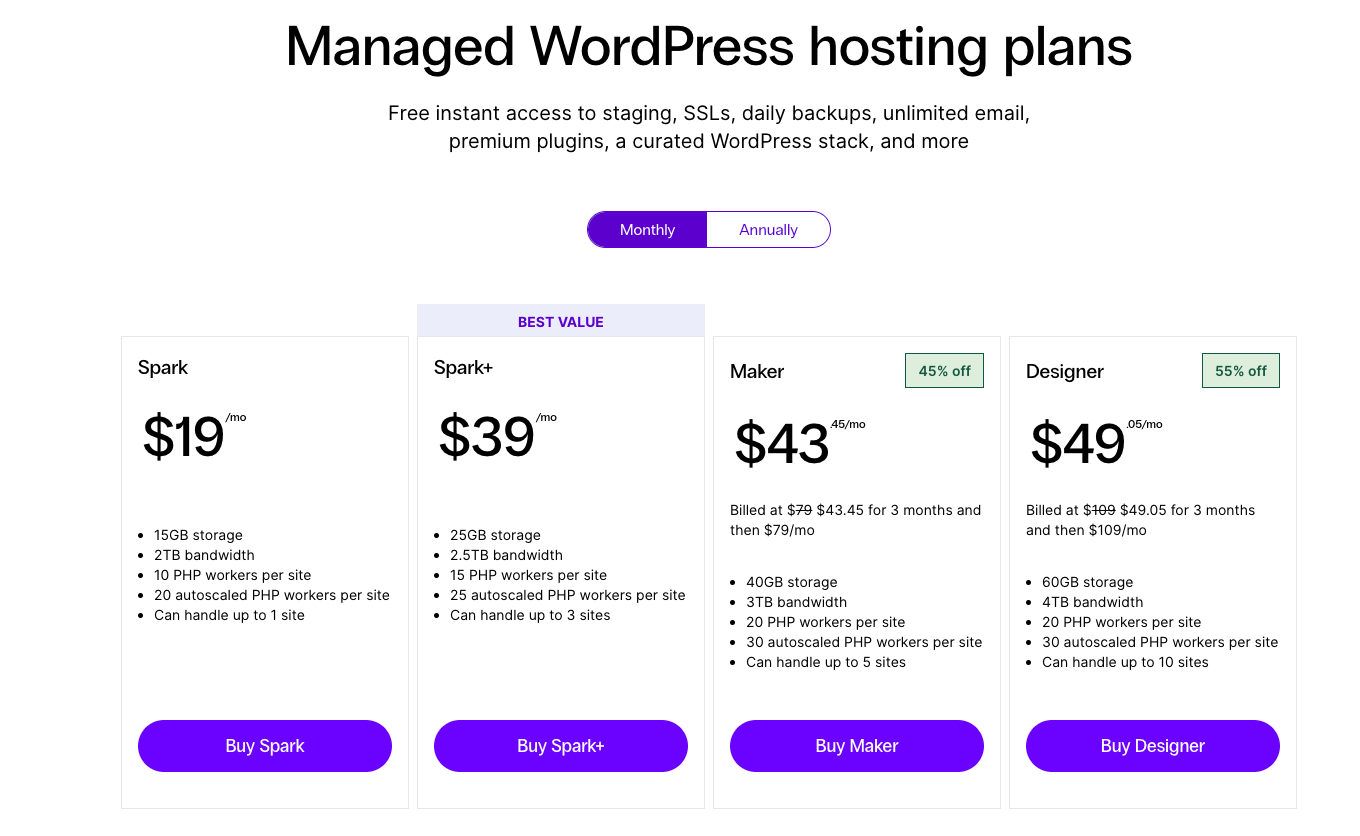
Pinpointing your rates is an essential step to building a reseller hosting business. Charge too little, and you risk not making enough to sustain your business long-term. Charge too much, and you could end up driving your customers toward more affordable reseller options.
The trick, then, is striking that perfect balance between affordable for your customers and cost-effective for your business.
There are a variety of factors that go into determining which rates make the most sense for your business. Location, customer base size, cost of your reseller hosting plan, the number of team members you have — the list goes on.
And while there may not be a perfect answer to what the perfect rate is, there is one essential thing you should keep in mind when determining it: The rate you charge for your services needs to be worth the extra cost to your customers. Otherwise, they could just purchase the web hosting plan directly from the provider.
To do this, you’ll need to build attractive web hosting packages.
5. Cultivate attractive web hosting packages
It’s vital to curate a range of well-designed hosting packages with not only server resources but also convenient features and systems desirable to your target clients.
If you already run a business, this is an opportunity to integrate some of its offerings directly into your hosting packages. Not only does this play to your company’s existing strengths, but it will also set your plans apart from those of your competitors.
Here are some examples of add-on features to include:
- Content management systems
- MySQL databases or MariaDB, which is used at Nexcess
- Wholesale domain registrations
- File transfer protocol (FTP) accounts
You can also offer practical extras like uptime or money-back guarantees, plugins monitoring, developer and ecommerce tools, billing platforms, or custom domain names management.
Whatever you decide to offer, make sure it aligns with your business plan and provides added value for your target audience.
6. Market your reseller hosting business with strategic content
Developing a strategic approach to your marketing ideas is extremely important. Your marketing strategy should be heavily informed by your unique value proposition, specific package offerings and features, target client, market, and rates.
You’ll want to use content formats your target audience will find engaging, such as email marketing with compelling CTAs. Also, your marketing efforts will need to focus on illustrating how easy-to-use your hosting packages are, as well as the ways in which your services improved your customers’ businesses.
It’s important to periodically review your dynamic business plan, core offers, and brand identity as you continue marketing. This will help keep your efforts in accordance with your business’s values and aims as you assess how to resell hosting.
Final thoughts: Building a WordPress reseller hosting business
Reselling web hosting services is an incredible way to earn recurring revenue without the need for advanced technical knowledge or large amounts of capital.
Starting a resell hosting business with WordPress, or adding hosting to your business’s current services, can expand your brand identity and position you for greater success.
But before undertaking this endeavor, it’s crucial to consider a few key things to ensure you can fulfill the requirements for a resell hosting business.
Choosing the right resell hosting provider is the most important step, as this will make or break your business’s ability to design attractive hosting packages, offer high-quality customer support, and charge competitive rates.
If you’re interested in higher profit margins and extra revenue via reseller hosting, you’ll want to consider fully managed WordPress hosting solutions from Nexcess, the perfect hosting partner.
And as your business grows, you can naturally expand your offerings and provide more value to your clients through the Nexcess partnership program.

